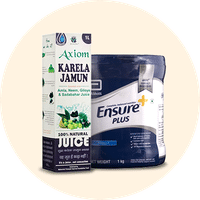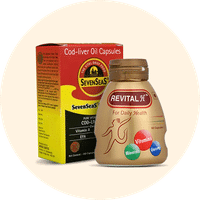Oxybone Tablet

Rs.239for 1 strip(s) (15 tablets each)
food interaction for Oxybone
alcohol interaction for Oxybone
pregnancy interaction for Oxybone
lactation interaction for Oxybone
food
alcohol
pregnancy
lactation
None
CAUTION
There is no data available. Please consult doctor before consuming the drug.
There is no data available. Please consult doctor before consuming the drug.
There is no data available. Please consult doctor before consuming the drug.
SALT INFORMATION FOR Oxybone
Calcium citrate(1250mg)
Uses
Calcium citrate is used in the treatment of osteoporosis.
How it works
Calcium citrate raises blood calcium levels and replenishes the body with required calcium.
Common side effects
Limited data available
Vitamin D3(2000IU)
Uses
Vitamin D3 is used in the treatment of Vitamin D deficiency and osteoporosis.
How it works
Vitamin D3 is a form of vitamin D. It raises vitamin D levels in your blood. This in turn raises calcium levels in your blood by helping you absorb more calcium from food.
Common side effects
Increased calcium in urine, Loss of appetite, Increased calcium level in blood, Itching, Rash, Urticaria, Facial swelling, Genital edema, Dry skin, Nail disorder, Erythematous rash, Decreased prothrombin level in blood, Difficulty in swallowing, Weakness, Fatigue, Sleepiness, Headache, Dryness in mouth, Metallic taste, Nausea, Vomiting
Magnesium Hydroxide(100mg)
Uses
Magnesium Hydroxide is used in the treatment of acidity, intestinal ulcers and stomach ulcers.
How it works
Magnesium Hydroxide is an antacid that neutralises excess acid in stomach.
Common side effects
Abdominal pain, Diarrhea, Nausea, Increased magnesium level in blood, Vomiting
Boron(250mcg)
Uses
Boron is used in the treatment of .
Common side effects
Limited data available
Zinc(4mg)
Uses
Zinc is used in the treatment of nutritional deficiencies.
How it works
Zinc is a micro mineral. It maintains mucous lining in the stomach. It also promotes water and electrolyte absorption in the body. It also increases the circulation of enzymes, which act against infections like diarrhea. It enhances the immunity by increasing immune boosting cells. This is how it works in resisting infections such as diarrhea.
Common side effects
No common side effects seen
Manganese(2mg)
Uses
Manganese is used in the treatment of nutritional deficiencies.
How it works
Manganese provides essential nutrients
Common side effects
Cholestatic jaundice, Extrapyramidal symptoms, Increased magnesium level in blood, Impaired biliary secretion
Methylcobalamin(1500mcg)
Uses
Methylcobalamin is used in vitamin B12 deficiency.
How it works
Methylcobalamin is a form of vitamin B12 that restores its level in the body thereby helping in treating certain anemias and nerve problems.
Common side effects
Decreased appetite, Diarrhea, Nausea, Rash
SUBSTITUTES FOR Oxybone
1 Substitutes
1 Substitutes
Sorted By
 Rs. 365pay 51% more per Tablet
Rs. 365pay 51% more per Tablet


















